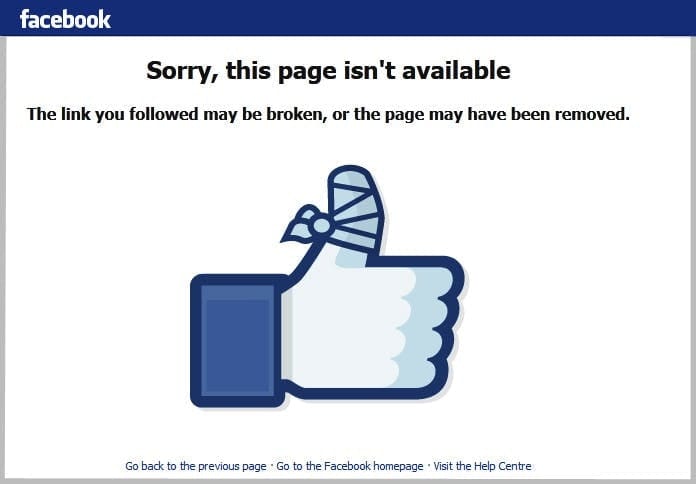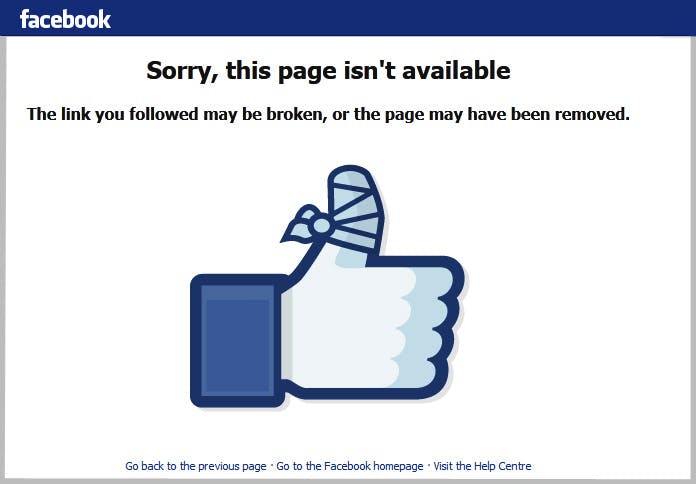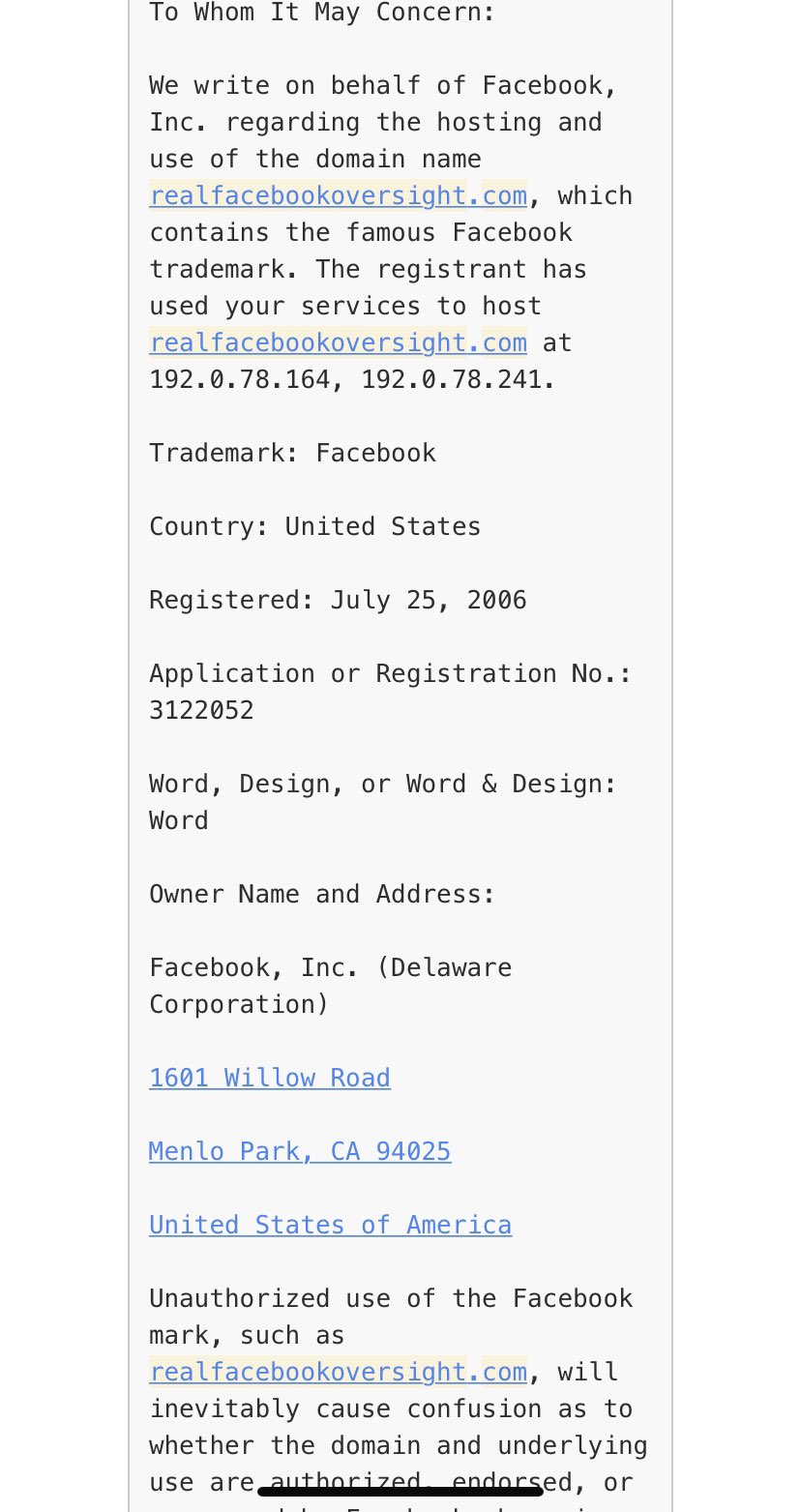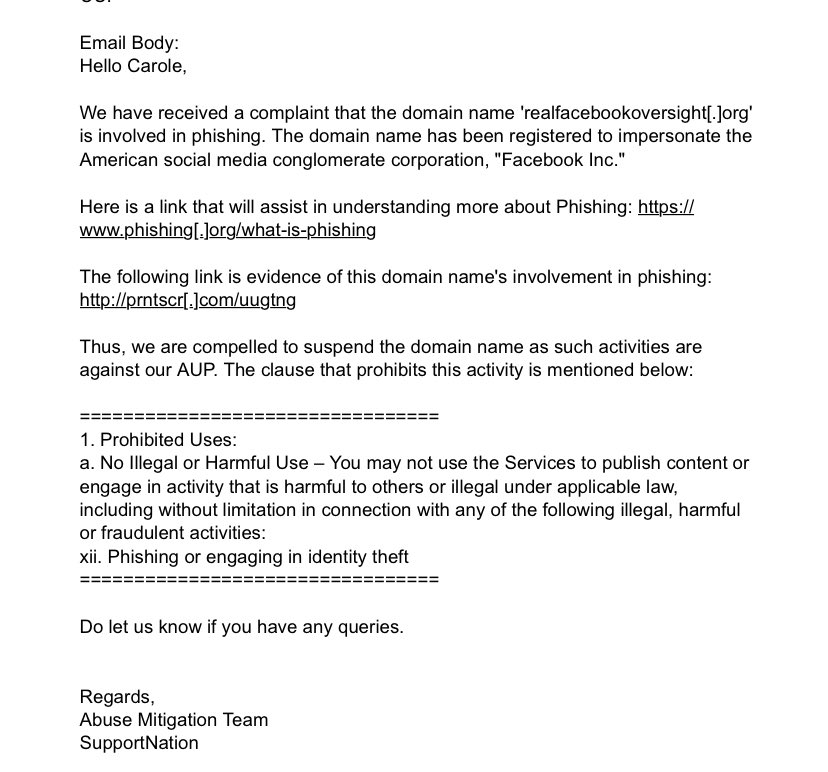Facebook Censors Outside Critics
"Free speech" only goes so far for Facebook, which is now actively silencing critics

In May, Facebook finally announced its oversight board. The timing was not auspicious given the urgency of oversight, with the US Presidential election looming. Worse, the board members couldn’t begin work right away because Facebook hadn’t remembered to get them the laptops they’d need to participate.
Given the approaching election and Facebook’s well-known role in enabling election interference and various forms of widespread misinformation, a volunteer group of academics, technologists, journalists, activists, and lawyers took matters into their own hands earlier this month, forming what they called, “The Real Facebook Oversight Board.”
This rebel alliance displeased the emperor, leading the company to file a complaint that has forced the volunteers’ web site offline. What dark magic enabled this? Facebook’s lawyers wrote to the group’s ISP demanding the site be taken down, alleging a trademark violation within its URL (realfacebookoversight.org).

Vice News has been following these developments, with a story just over a week ago covering the rebel alliance’s emergence topped with the no-nonsense headline:
An Outside Oversight Group Is Forcing Facebook to Get Its Shit Together for the Election
The outside group formed because Facebook has been slow-walking its own oversight group, part of its practices of delay and obfuscation, otherwise known as “putting lipstick on cancer,” in a turn of phrase popularized by Scott Galloway.
How slow has Facebook been in seeking oversight? The idea for an oversight group at Facebook began in 2018, and led to a 250-page report from a period of public consultation to the appointment of the board in 2019, then to the May 2020 announcement, and finally to a vague indication that the oversight board would begin working “later this year.”
The “real Facebook” oversight board is not affiliated with Facebook, yet consists of some heavy-hitters, including Roger McNamee, Reed Galen, Laurence Tribe, and Carole Cadwalladr. These people are staunch critics of the platform — and for good reason, I’d add.
The ISP involved — SupportNation — said the website was being taken offline after Facebook complained that the site was involved in “phishing,” even though the complaint from Facebook that triggered the action seems more focused on alleging a trademark violation:

The response from SupportNation — an ISP based in Burlington, MA — seems to have independently transformed this trademark complaint into a phishing complaint:

Clearly, the site was not registered to impersonate Facebook, but to mock it.
Cadwalladr in particular was having none of it, tweeting in response to Facebook:
U scared? Because nothing says ‘free speech’ quite as much as a multi-billion dollar corporation with a global monopoly getting its critics shut down & booted off the internet.
Overall, this is just another story of Facebook’s shabby corporate practices and insecure corporate culture.
There are two elements of Facebook’s response lacking elegance and sophistication, I think.
First, one of the most elegant ways to quell critics is to call their bluff — that is, hire them, give them legitimacy, and sincerely see if their ideas can help you. Often enough, critics deflate when accepted and given even a modicum of authority or responsibility, and their ideas turn out to be few and easily addressed. Facebook’s inelegance in the face of this outside group indicates a reflexive resistance to outside oversight, and perhaps some genuine fear of what an active oversight body, and these critics in particular, might say. One can only conclude that any hopes their own oversight board will be effective or empowered are probably unrealistic.
Second, harassing critics by punching down, seeking to deprive them of their First Amendment rights, and using bogus legal arguments to do so is the worst kind of petty and unsophisticated corporate behavior. Clearly, leadership at Facebook remains small-minded and insecure, despite their power and billions. A more elegant response would have been to just ignore it, or to buy a similar URL and redirect to its own oversight board. A draconian response like this is likely to backfire, especially because the US national elections are already underway —more than 5.4 million votes have already been cast — and Facebook is suspected of remaining blithely vulnerable to manipulation yet again.
Facebook needs oversight. Every company does. Facebook’s corporate board is infamous for having its best members resign once they learn that Mark Zuckerberg takes nobody’s advice, and that his organization is greedy and shameless. Now, Facebook’s effort to whitewash its governance problems with an insincere effort at external oversight has been shown via mockery to be a mockery — as has Facebook’s assertion that the company is devoted to protecting and promoting free speech.